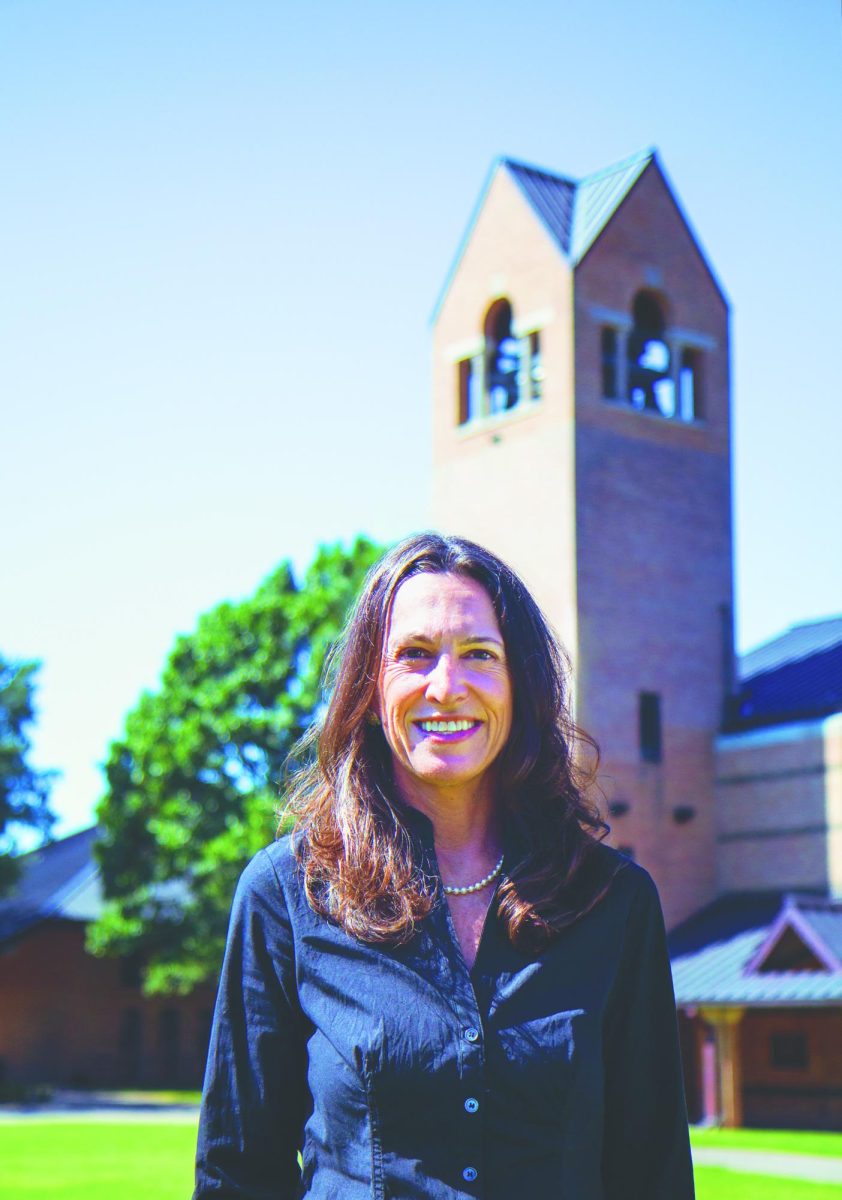“The Great Gatsby” describes the eyes of Dr. T.J. Eckleburg in the “valley of ashes.”
“Hamlet” wrestles with spiritual themes of sin and redemption.
The title of “Song of Solomon” alludes to a love song.
These biblical references consistently flew over students’ heads.
The Bible has transcended generations of literature, art and expression. As the foundation of thousands of years of cultural development, a thorough understanding of its content is necessary to fully grasp the depth of many important literary works.
Because of the prevalence of biblical references throughout the classics, it almost serves as a prerequisite for English classes.
Without that foundation, it is harder to be as fully immersed in the literary world, and students not raised with biblical knowledge can face a significant disadvantage in the classroom.
“To be literarily educated, you have to know the Bible,” Director of Character & Leadership Education and former English Teacher David Brown said. “In fact, I would not say it has to be for religious reasons. My reason for knowing the Bible is because it is the most alluded to and referenced source in all of Western literature, far and away.”
Yet despite its importance, the English Department recognized a significant gap in students’ biblical literacy.
“In the last 20 years of teaching, I was appalled that students didn’t know the Bible any better,” Brown said.
For this reason, Brown ordered a set of Bibles in his first few years of teaching, using them as a reference for students to follow along. He also composed a two-page document with more than 100 of the most significant characters, stories and events with references for where to find them.
For years, he advocated for a more comprehensive study of the text. Now, his proposal has finally broken through. “The Bible as Literature,” a new senior English class was introduced this year and aims to fill this gap by exploring the Torah, the first five books of the Hebrew Bible, also known as the Old Testament.
English teacher Cameron Hillier ’13, who will teach the class this spring, emphasizes that students don’t need to believe in the Bible religiously to study it.
“These are very old stories that have been retold for thousands and thousands of years,” Hillier said. “That must mean that they’re at least worth taking a look at. Any story that’s lasted that long is worth taking a look at.”
Even though the class studies elements of the Bible, it will not approach religion from a devotional angle but from a wider lens that focuses on its historical, literary and cultural significance. This perspective allows students without religious beliefs to still gain important insights from a non-biased approach.
“Even reading fictional stories teaches us some very real knowledge or ways to go about our world today,” Hillier said. “It informs us how we view the world, how we think about ourselves, all based on a story that’s not real. So even if your approach is, ‘I don’t think the Bible speaks to religious truth in any way,’ that’s fine. Read it like any other book.”
With ongoing debates over the purpose and extent of religion in education, the school’s approach to religion continues to remain nonsectarian. A recent Texas law mandated that public schools hang a poster of the Ten Commandments in every classroom — a move that is being disputed as a potential violation of the separation of church and state. Because the Ten Commandments reflect a Judeo-Christian worldview, such policies risk excluding students of other faiths and deepening inter-religious division.
So the school, not wanting to risk alienating its students with religious policies, instead emphasizes inclusivity through a variety of religious celebrations.
But at its core, the Bible is still a work of literature. It has authors, readers and countless interpretations, like just other English texts.
When treated like any another work of literature, beyond its spiritual and cultural influence, the stories from the Bible have their own merit — fact or fiction.
“Do we stop teaching mythology because we don’t believe those stories actually happened, or we don’t think that they’re sacred or special in some way? Mythology was, in its day, the religion of the people,” Brown said. “Yet it’s important to teach because of how much our world revolves around it.”
The Bible serves as a fundamental part of this worldwide lens.
Ultimately, Hillier believes its profound influence exists because it must speak to some facet or truth of the human experience that has resonated with people throughout centuries.
“Chances are (the stories) were being told through word of mouth before they were ever written down,” Hillier said. “We aren’t going to speak to the religiosity of it and try to agree. It’s a book that tells stories that have been with us for a very long time. They must speak to something.”








